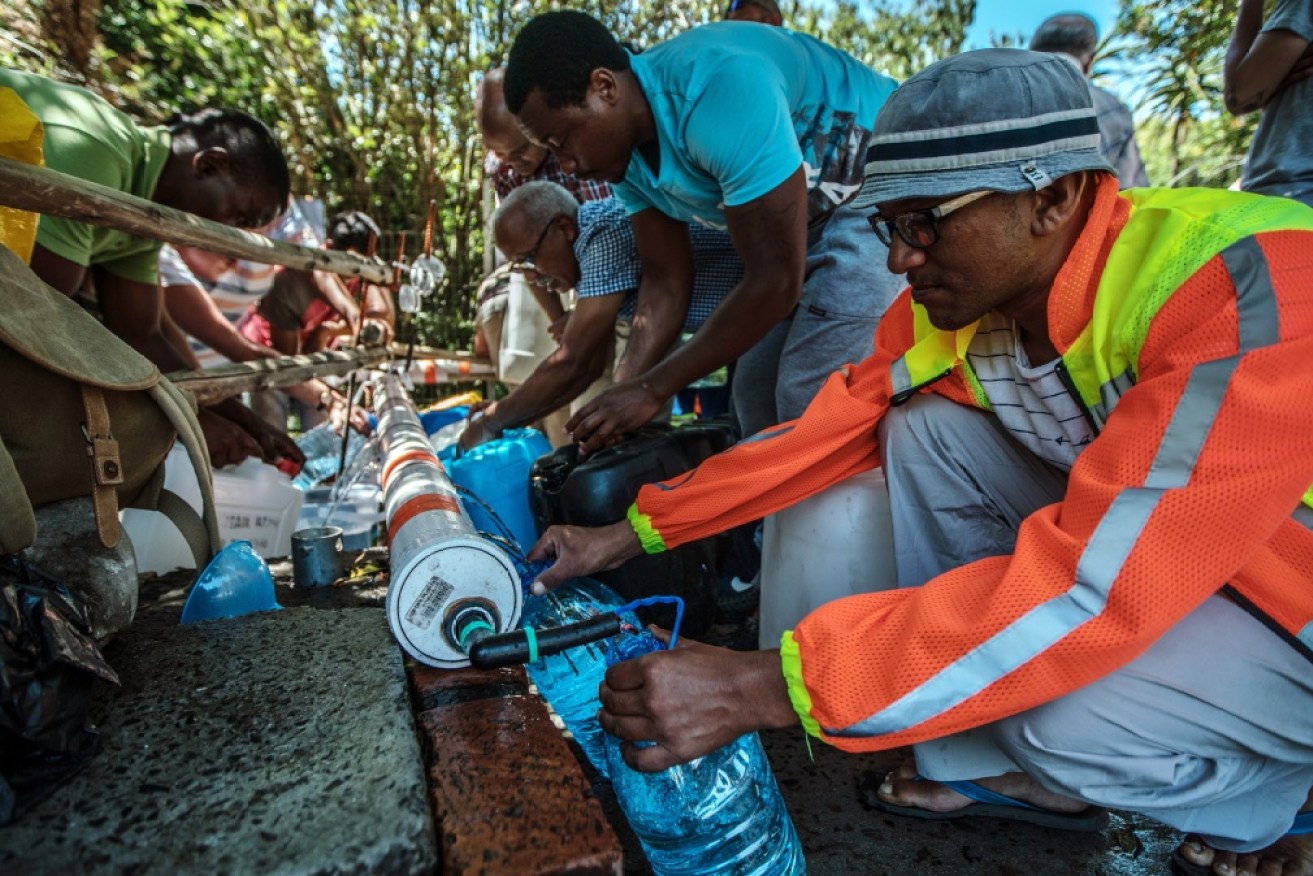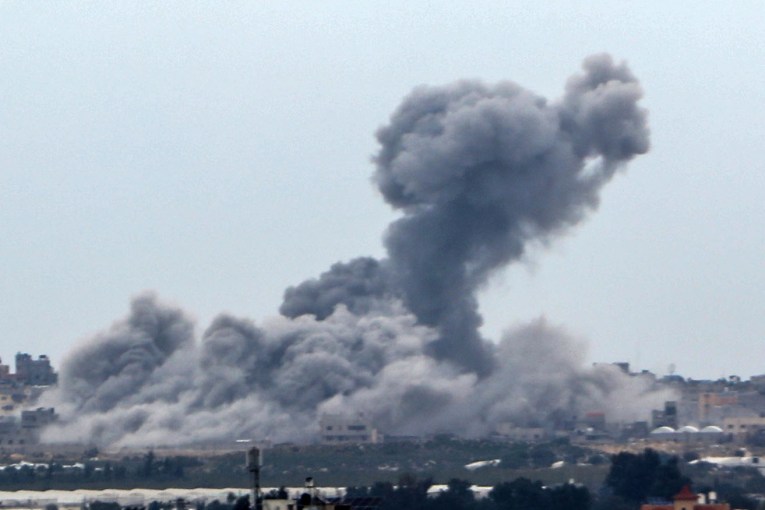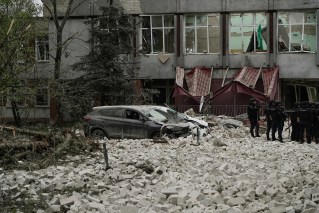Cape Town’s ‘Day Zero’ delayed to mid-May


Cape Town says a drop in agricultural water usage means it will reach "Day Zero" on May 11. Photo: Getty
South Africa’s drought-stricken city of Cape Town has pushed back its estimate for “Day Zero” – the day the city’s water supply is expected to run dry.
Executive Deputy Mayor Ian Neilson announced on Monday the city would be pushing its doomsday date back from April 16 to May 11, with authorities citing a decline in agricultural water usage behind the new projections.
He said the agricultural sector – which uses the same water supply the city draws its water from – had used its allotment resulting in a drop in usage.
However, Deputy Mayor Neilson warned the fall did not spell an end to water restrictions in Cape Town.
“Capetonians must continue reducing consumption if we are to avoid Day Zero. There has not been any significant decline in urban usage,” he said in a statement.
“All Capetonians must therefore continue to use no more than 50 litres per person per day to help stretch our dwindling supplies.”
Deputy Mayor Neilson said the city expects agricultural water usage to “drop significantly” over the next few weeks, with the sector drawing about 20 per cent of the water in the supply scheme.
He added Day Zero’s movement to mid-May offers Capetonians hope with the rainy season expected to arrive by then.
“This is a welcome decline in water usage and gives Cape Town and some of the other municipalities hope but importantly, we need to get our consumption down to 450 million litres per day to prevent the remaining water supplies running out before the arrival of winter rains,” he said.
“We cannot accurately predict the volume of rainfall still to come, or when it will come.”
Meanwhile, Western Cape Government Environmental Affairs and Development Planning minister Anton Bredell said the local government is currently securing water supplies at schools, hospitals and other facilities.
“Our aim is to make sure these institutions remain operational, even in the event of a Day Zero situation,” he said.
“Eighteen provincial health facilities have been identified as being of the highest priority, given the nature of services they provide and their location.
“Of the 18, 16 facilities have already been secured with sufficient ground water having been found for these premises. Work remains ongoing at Groote Schuur and Caledon hospitals.”
-With AAP








